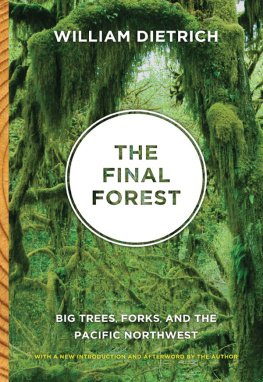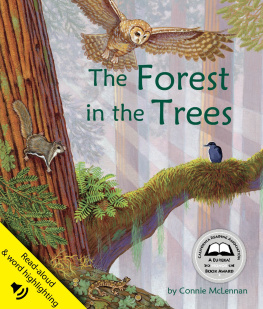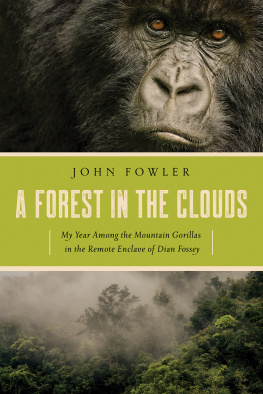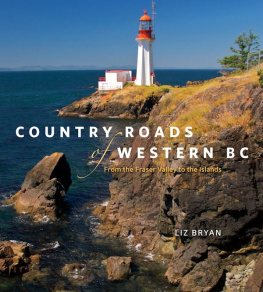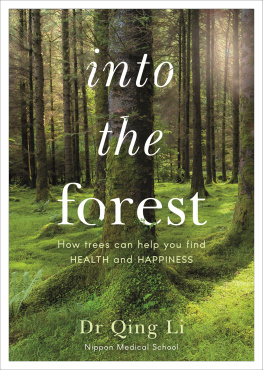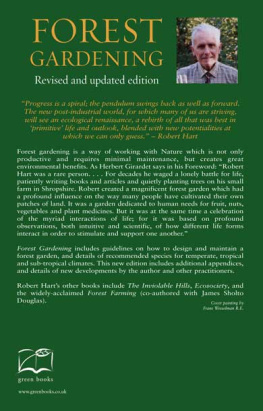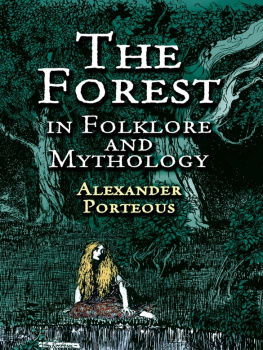Table of Contents
Guide
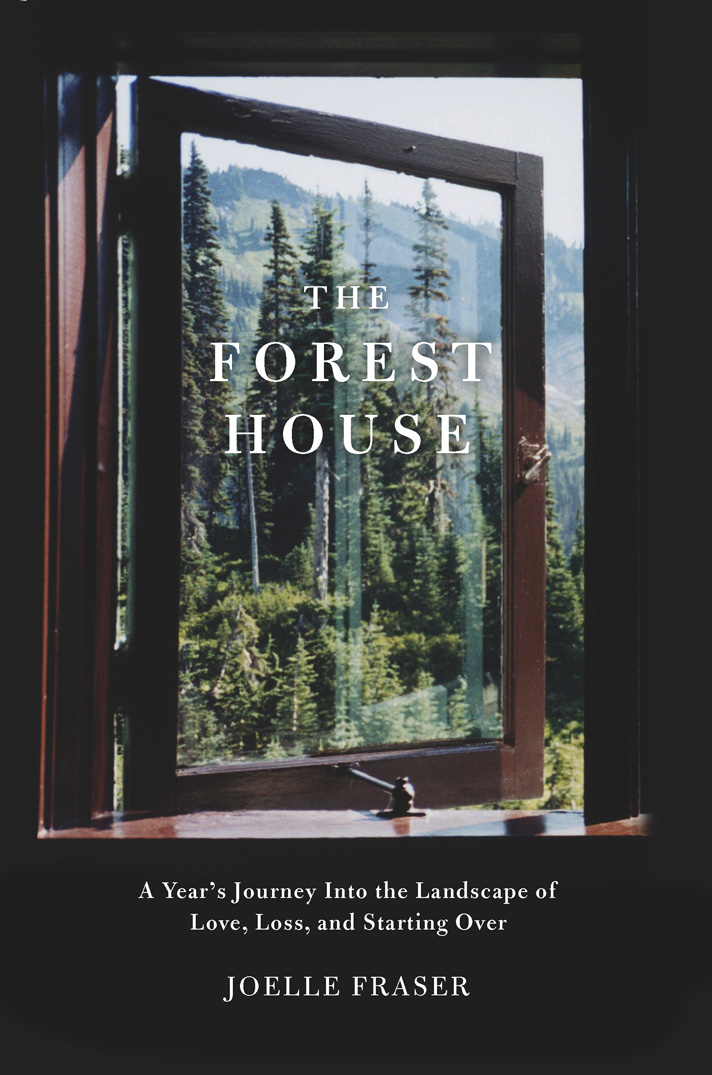
THE FOREST HOUSE
ALSO BY JOELLE FRASER
The Territory of Men: A Memoir
THE
FOREST
HOUSE
A Years Journey Into the Landscape of Love, Loss, and Starting Over
Joelle Fraser
COUNTERPOINT
BERKELEY
The Forest House
Copyright 2013 by Joelle Fraser
All rights reserved under International and Pan-American Copyright Conventions. No part of this book may be used or reproduced in any manner whatsoever without written permission from the publisher, except in the case of brief quotations embodied in critical articles and reviews.
Library of Congress Cataloging-in-Publication Data
Fraser, Joelle.
The forest house : a years journey into the landscape of love, loss, and starting over / Joelle Fraser.
p. cm.
ISBN 978-1-6190-2205-8
1. Loss (Psychology) 2. Divorce. 3. Mothers and sons. I. Title.
BF575.D35F73 2013
818'.603dc23
2012040586
Cover design by John Yates
Interior design by meganjonesdesign.com
COUNTERPOINT
1919 Fifth Street
Berkeley, CA 94710
www.counterpointpress.com
Distributed by Publishers Group West
10 9 8 7 6 5 4 3 2 1
To children everywhere, and the parents who love them
AUTHORS NOTE
The Forest House takes place between February 2010 and February 2011. Many names and identifying features have been changed in the interest of privacy. What remains is my story, and mine alone. As always, others have their own stories to tell. In the writing of this book, I have tried hard to remember, and respect, the difference.
CONTENTS

In Spanish, sierra nevada means snowy mountain range, an appropriate name because the Sierra is one of the snowiest places in North America. Only the coastal ranges of the Pacific Northwest, from Oregon to Alaska, regularly receive greater snowfall than the Sierra.
STEPHEN WHITNEY, A SIERRA CLUB NATURALISTS GUIDE TO THE SIERRA NEVADA
I MOVED TO THE forest house in the last days of January, when the wind sailed down from the Sierra, and snow fell in long, blinding sheets that knocked out power lines, plunging our small town into darkness and freezing the streets in layers of ice. When my husband was at work, and the roads safe enough, I drove the eight winding miles back and forth from the small town of Susanville with suitcases full of clothes, boxes of books and toys, dishes and blankets, and whatever caught my eye as necessary for a new life.
Often I was the only car on the road, and aside from the cattle strewn across the icy meadows of Palmer Ranch, and the few horses pastured along the way, there were few signs of life. Through this winter landscape I drove as if partly submerged, staying one breath ahead of the fear, and guilt. My thoughts were occupied with the immediate and the pressing, as I was aware only that I had a few days to make a home for my son and me.
We were moving to a beautiful but slightly dangerous place, a tiny one-bedroom house on ninety-seven wooded acres at the end of Diamond Fall Road, at the county line, just before the pavement ends and the road turns to dirt and tunnels into the trees. The driveway is a steep, narrow dirt road, a quarter mile long, with two doglegs on the way up. Like the few other houses out this way, mine is hidden, much like a little nest, in the forest that begins here and continues for hundreds of miles into the mountain ranges of the northern Sierras and southern Cascades. I felt this to be truly the edge of the world I knew.
In my state of mind, driving to my new home was thus an odd act of faith: I never could see it until I was almost to the door itself.
Sometimes, when I wasnt fast enough to beat the weather, flakes of snow would begin to drift down from the sky, obscuring my tracks both behind and ahead, the evidence of my coming and going, and I would feel an otherworldly sense of being neither here nor there, but always in between. It was not just about moving from one place to another, but moving from one part of myself to another. This surreal feeling exhilarated me, but it was frightening, too. It was in those times that I questioned my choice to live so far from town. But by then, it already seemed too late.
Besides, the solitary location appealed to mefirst because of my own quiet, private nature, but also because of the circumstances. There was the practical matter of the unbeatable rent: $400 for a cozy (if old and cranky) house on nearly a hundred acres. Though other towns might have offered options, and been a better fit for me, the nearest was eighty miles away, on roads often impassable in winter. To go so far afield would make it too hard for my child, who, I was determined, would always live close to his father.
The location drew me too because divorce is a sad, shameful thingtheres no getting around itand in such a small, conservative town as the one in which we live, privacy would offer at least a temporary reprieve from the surprise and dismay that, like a rising tide, was coming our way once news got out.
Most of all, there was something Id lost as my marriage crumbled, slowly and inexorably as a shallow, poorly built wall. I sensed, in the way you sense the inevitable, such as the way you feel the days shift to night, that I couldnt find what was lost or heal what was broken in a place of noise and neighbors and the rhythms of ordinary life.
In many ways, the forest house was almost too good to be true, and without it I would not have had the strength to leave.
ASIDE FROM THE terrible emotions, Id never gone through a more difficult move. Because the house had been vacant for months, the last stretch hadnt been plowed since before Christmas, when the landlord came to check on the pipes. So, more than once, after a fresh snowfall my car wouldnt make it up the final steep curve, and Id park halfway up and trek the last hundred yards. Those days, I made as many trips as my legs could manage, huffing and puffing through snow to my knees with a lamp or load of toys, Dorfy the dinosaur peering at me over the edge of the box, his tiny jaws gaping wide in whatdisbelief? Outrage? Some kind of crazed glee?
I could have waited for the convenience of spring to move, for its warmth and lift. Winter is a terrible time to move, to make dramatic changes, most of all to end a marriage. And if you live in a forest, winter is a season to prepare for in the autumn, and evenif you have a fireplacein the summer. I was out of my element. A good part of my life Id actually lived in the tropics, in Hawaii. Even here in the high desert of northeast California, with its harsh winters, Id always lived in a conveniently heated house in town, two blocks from Main Street and Susanville Supermarket, with neighbors close enough to have conversations through our open windows.
I could have waited, too, until Id squirreled away more money, found some decent pieces of furniture, set aside a matching set of disheswaited for yet more confirmation that I was doing the right thing. Wed been unhappy for so long, for years; why not stay a little longer? All I can say is that I was dying a little more every day, and that finally I had no choice any longerready or not, snow or no snow.



